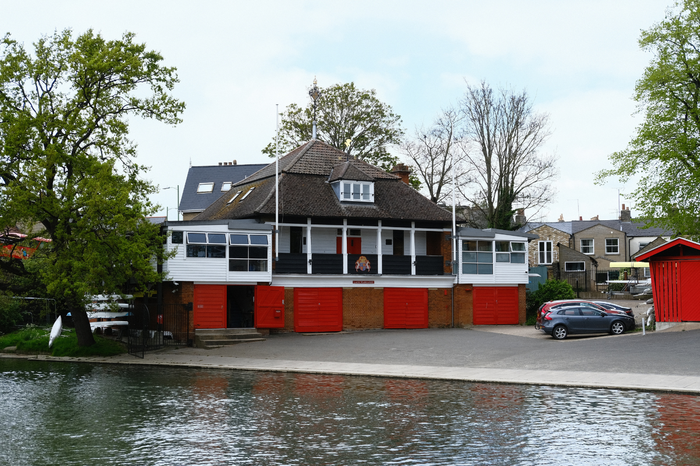Trinity splashes the cash on boffin students, while Lucy Cav falls short
One Trinity student received £1,080 for their exam results

Vast disparities exist between awards different colleges give to students who achieve highly in exams, with some colleges offering over £600 for individuals who attain a first, whereas others hand out just £50.
In the 2023-24 academic year, Trinity College spent a total of £215,706 on scholarships and academic prizes for high attainment. Unsurprisingly, the University’s second wealthiest college, St John’s, spent the second most last year at £102,888, with the majority of this – £78,750 – financing scholarships for students who achieved a first.
Trinity’s total is 38 times the amount spent by Lucy Cavendish, who spent £5,550 – the least of the 26 colleges that responded to freedom of information requests.
Fatima Zahra Yusuf, said: “As a Lucy Cavendish student, I’m honestly quite frustrated and disappointed to learn about this disparity in exam awards between colleges. It feels unfair that my academic achievements are valued less financially simply because I’m at a less wealthy college.”
“This however links to the broader issue of wealth inequality among Cambridge colleges. We need a motion calling for a redistribution of college wealth, especially when it comes to student awards and support,” she continued.
The systems for awarding prizes differ greatly across colleges, with Emmanuel College’s figures revealing that they awarded more in total to students who achieved a II.i in their examinations than to those who achieved a first in 2023-24.
Other colleges also have broader criteria for awards. An Exhibition Prize of £50 is given to Christ’s students who narrowly miss out on a first, while Sidney Sussex focuses on individual improvement. The College awards £130 to those who achieve a substantial percentile improvement of 25% or more in the merit ranking or who rank in the 26th-35th percentiles.
Sidney Sussex student Alex Brian explained: “Cambridge can sometimes be an overly competitive and pressurising environment so it’s great to see Sidney encouraging students, not to compete with each other, but to challenge themselves to do better.”
For Alex, not only does this make the awards “much more inclusive,” but “it recognises that study is a personal struggle, for which one’s effort should be rewarded, rather than simply one’s ability to come out on top among some of the best minds in the country.”
Varying criteria for awards lead to huge differences in the total amount of money individual students receive, with some colleges offering significant subject prizes on top of scholarships. This enabled one student at Trinity to be given a total of £1,080 in awards from the College last year.
In contrast, at St Catharine’s, 54 students who achieved firsts were awarded scholarships, with a further 89 who also attained a first receiving a named prize instead of a scholarship. Named prizes replace scholarships if a student is awarded both.
Disparities also exist in the amount students from different years receive. At Queens’, a first-year scholar gets £200, with this amount increasing by £50 each year, while at Jesus students receive £90 in first year compared to £150 in subsequent years. This is similar to Hughes Hall, who awards £50 for a non-final year first, increasing the amount to £200 in the final year.
While at most colleges, awards do not vary across subjects, there are some exceptions, notably when prizes are funded by donations. At Trinity Hall, all subject prizes are £200 except for four law prizes which range from £250 to £450.
At Girton, special regulation prizes exist for Engineering, Music, Law, English, MML, and Geography, with the amounts students receive varying from £100 for Geography to £800 for Engineering.
Extra perks offered to scholars also vary significantly between colleges. Most colleges offer a free ‘scholars’ dinner,’ with scholars at some colleges such as St John’s and Emmanuel being invited to read grace at subsequent formals. At Emmanuel, award holders who choose to read grace at formal dine at the College’s expense on that occasion.
While scholars’ ballots are now largely a thing of the past, scholars at both Churchill and Peterhouse are still offered a certain amount of free accommodation outside of the standard residential period.
Speaking on the disparities between colleges, Sarah Anderson, SU Undergraduate President, and Katie Clarke, SU Access, Education and Participation Officer told Varsity: “As part of the ongoing teaching review, we are encouraging the University to re-approach how it values academic achievement, including all the potential different outcomes of a student’s learning journey.
“We should celebrate all students’ academic achievements, especially when they frequently are achieved against a backdrop of social and financial disadvantage,” they continued.
A spokesperson from Trinity College said: “Trinity College continues to do everything it can to support its members, and students and researchers across the University of Cambridge and its Colleges. In 2023-2024, Trinity spent more than £10 million in support of the Collegiate University, particularly through research and studentships, and via contributions to other Colleges.”
Senior Tutor at Christ’s College, Professor Tom Monie, said: “Christ’s values and recognises all forms of academic and extra-curricular achievement by its students.”
All relevant parties were contacted for comment.
 Interviews / You don’t need to peak at Cambridge, says Robin Harding31 December 2025
Interviews / You don’t need to peak at Cambridge, says Robin Harding31 December 2025 News / Unions protest handling of redundancies at Epidemiology Unit30 December 2025
News / Unions protest handling of redundancies at Epidemiology Unit30 December 2025 Comment / What happened to men at Cambridge?31 December 2025
Comment / What happened to men at Cambridge?31 December 2025 Features / ‘Treated like we’re incompetent’: ents officers on college micromanagement30 December 2025
Features / ‘Treated like we’re incompetent’: ents officers on college micromanagement30 December 2025 Theatre / We should be filming ADC productions31 December 2025
Theatre / We should be filming ADC productions31 December 2025









